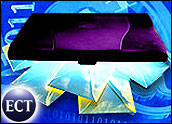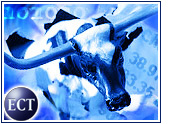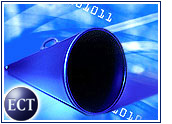
A coalition of consumer groups has petitioned the Federal Trade Commission to step up its efforts to ban spam. The Telecommunications Research and Action Center (TRAC), the National Consumers League and Consumer Action told the commission that the sending of unsolicited commercial e-mail should be classified as an unfair and deceptive trade practice.
While the petitioners acknowledged that “marketing is critical for businesses to gain and retain customers,” they also said consumers have been overwhelmed by spam.
“Americans are drowning in commercial spam e-mail today, and this situation is only going to get worse unless strong action is taken now,” said Samuel Simon, chairman of TRAC. “We are urging that the Federal Trade Commission take steps now to halt the outrageous excesses of unsolicited bulk e-mail senders.”
Unsolicited, Unwelcomed
“A common deceptive practice used by spammers is to indicate in the e-mail that it was requested by the recipient when in reality it was not,” the petitioners said. “Lists of valid addresses are sold and passed among spammers who have no regard for the amount they send. The number can get so large that it becomes a burden for consumers to have to sort through and delete what they do not want.”
Even more disturbing is “deceptive, fraudulent or intentionally misleading” spam that is “costly and burdensome to consumers,” according to the petitioners.
No Misrepresentation
The consumer groups said they want the FTC to declare spam “unlawful” if it misreprents the sender, subject or content of e-mail. Unsolicited commercial e-mail also should be unlawful, according to the petitioners, if it does not offer “reliable contact information for the real party of interest” or does not offer a reliable way for consumers to opt out. The petition also takes issue with spam that is sent to a consumer who has already opted out or tried to be removed from the sender’s list.
Ken McEldowney, executive director of Consumer Action, said he fears spamwill drive consumers “to turn their backs” on the Internet. “We already hear stories about the burden of junk e-mail threatening to drive consumers off of e-mail altogether,” he said.
FTC Committed
In a statement, J. Howard Beales, III, Director of the Federal Trade Commission’s Bureau of Consumer Protection, said the FTC “is concerned about the proliferation of spam affecting consumers” and will review the consumers groups’ petition. Beales added that law enforcement is key to winning the battle against spam, and he noted that the commission “had brought numerous cases against deceptive and misleading spam practices.”
In June. FTC Chairman Timothy J. Muris told the Networked Economy Summit in Reston, Virginia, that the commission receives as many as 42,000 samples of deceptive spam daily. Muris pledged last fall to “take the spam out of the refrigerator.”
He also noted that the FTC has conducted a “remove me” project that tested how easy it was to remove oneself from spam lists. “We found that most of the addresses were invalid,” Muris said. “In other words, the removal option did not work.”












































As the developer of BigSender (the online list-management and email / web publishing system), and the publisher of a couple newsletters myself – as well as an unwilling recipient of hundreds of unsolicited commercial email messages each day, I have been very concerned about recipients’ frustration with many "bulk emailers" that do not generate the proper code (unintentionally or otherwise) for instant removal from the list from which the message was sent.
From the very first public release of BigSender, my software embeds a "remove" link automatically that, when clicked, removes the recipient as a subscriber in real-time.
To me, it’s a matter of integrity and respect for those who have subscribed to my newsletters and the publications of those who use my system.
I’m encouraged and grateful those unnamed "Consumer Groups" are not advocating infringing on legitimate communication AM ong anyone, consumers, businesses, friends, family, etc. and are focused, instead, on the blatant, costly, abusive and usually offensive unsolicited commercial emails clearly sent for deception and/or fraudulent intent.
Thank you for an opportunity to comment on this issue so important to all of us with a computer connected to the Internet.
Craig Richards
http://www.CraigRichards.com/